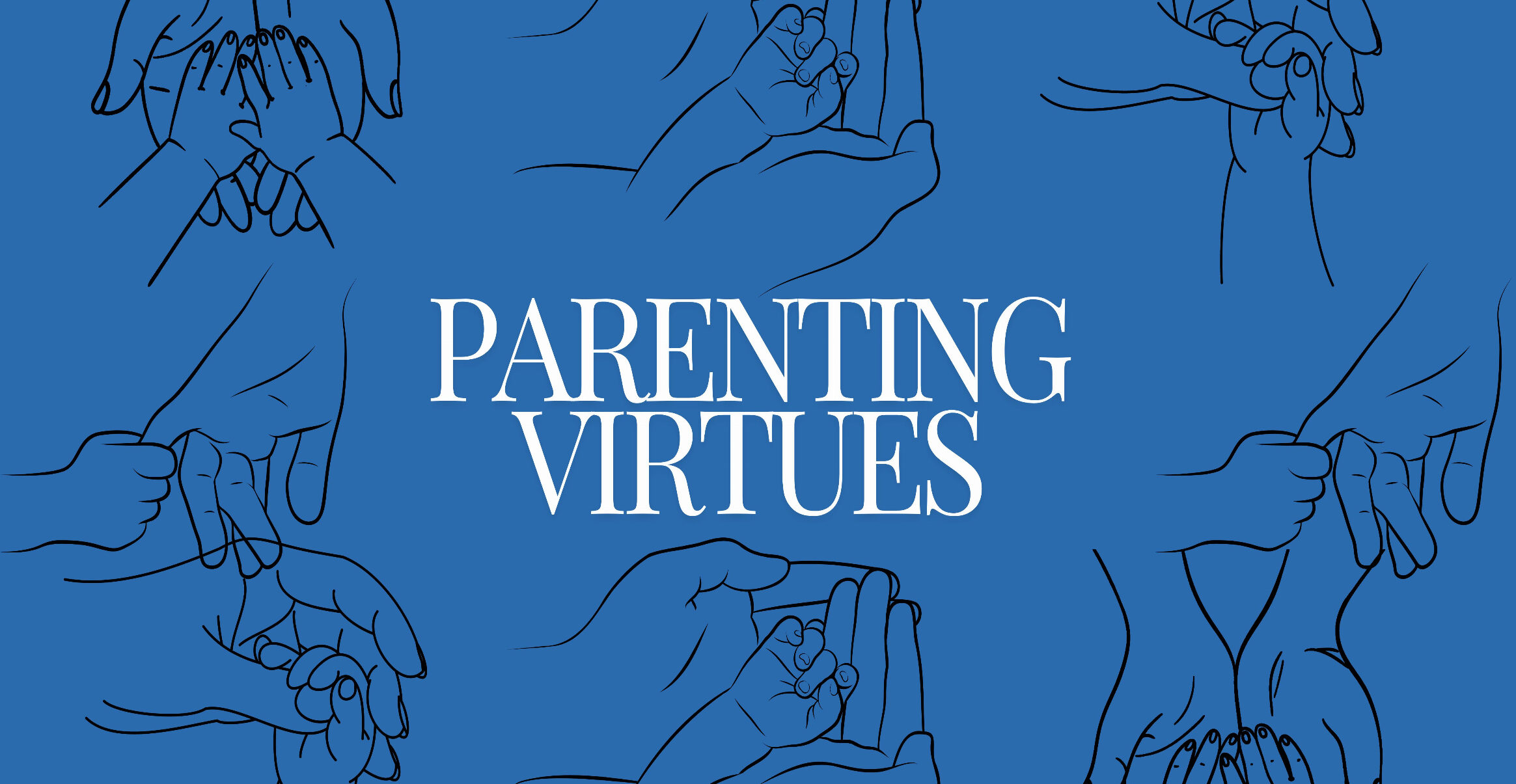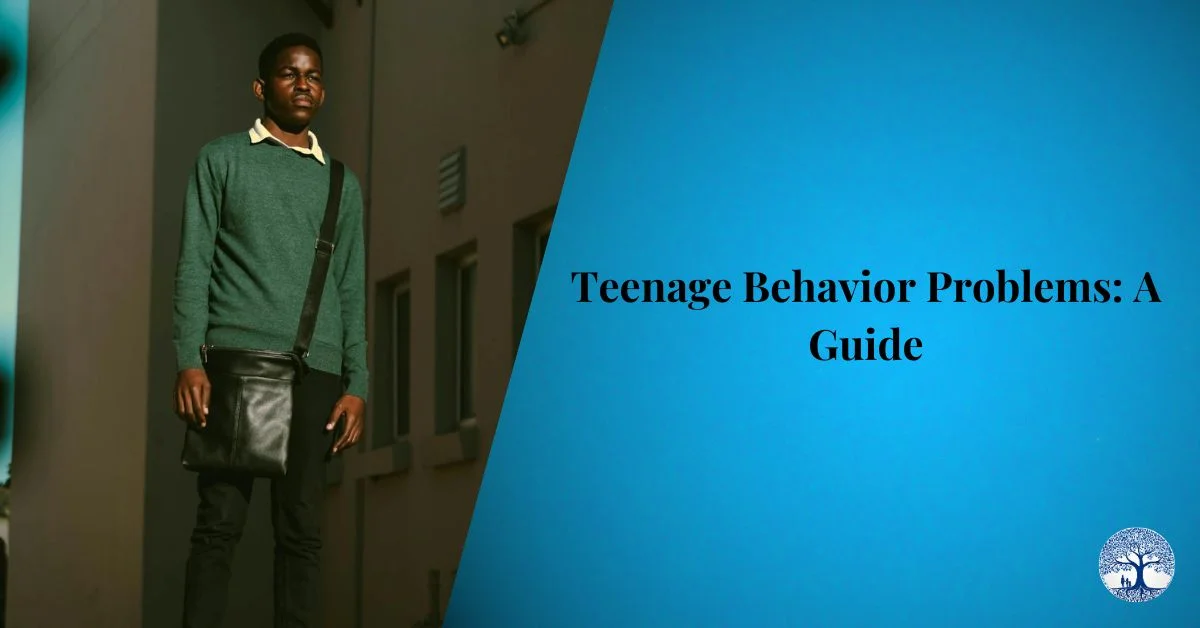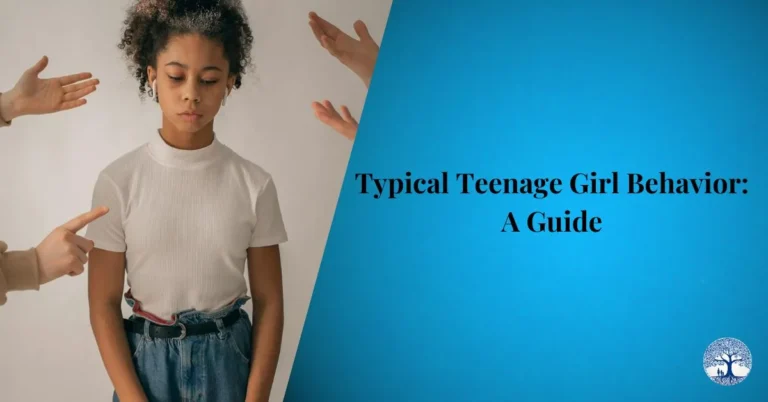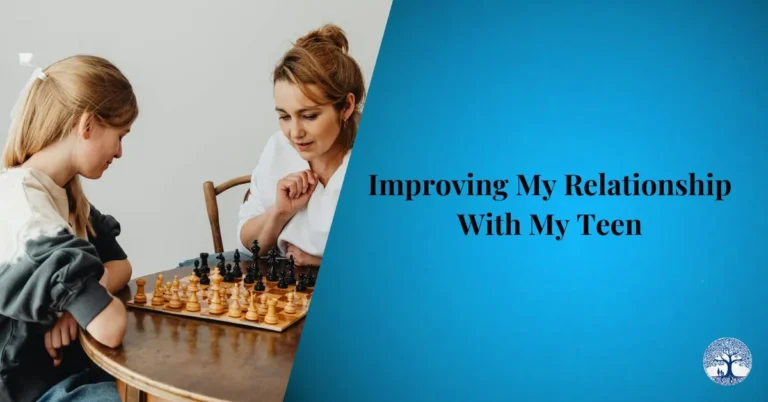Introduction
The teenage years are often marked by a whirlwind of changes, both physical and emotional, that can lead to a range of behavior problems. From mood swings and defiance to the pressure of fitting in with peers, these challenges can be overwhelming for both teens and their parents. Understanding these common behavior issues is crucial for effective parenting, as it allows parents to navigate these turbulent years with empathy, patience, and the right strategies. By recognizing the root causes behind a teenager’s actions, parents can foster a supportive environment that not only addresses the behavior but also nurtures their teen’s growth into a responsible and well-adjusted adult.
Understanding Teenage Behavior
The Teenage Brain
During the teenage years, the brain undergoes significant development, particularly in the prefrontal cortex—the area responsible for decision-making, impulse control, and reasoning. This ongoing development explains why teens may sometimes act impulsively or struggle with planning and prioritizing tasks. The limbic system, which governs emotions and reward-seeking behavior, is also highly active during this time. The imbalance between a still-maturing prefrontal cortex and an overactive limbic system can lead to heightened emotional responses and risk-taking behavior, making this period a challenging one for both teens and parents.
Hormonal Changes
Hormonal changes during puberty play a significant role in teenage behavior. The surge of hormones like estrogen and testosterone not only drives physical changes but also has a profound impact on mood and emotions. These hormonal fluctuations can cause mood swings, irritability, and increased sensitivity, making teens more prone to emotional outbursts. Understanding that these changes are a normal part of development can help parents approach their teen’s behavior with more empathy, realizing that these mood shifts are often beyond their teen’s control.
Identity and Independence
Adolescence is a critical time for identity formation, as teens begin to explore who they are and how they fit into the world around them. This quest for self-identity often involves pushing boundaries and testing limits, which can manifest as defiance or rebellion. The need for independence also grows during this time, leading teens to distance themselves from parental control and seek more autonomy. This struggle for identity and independence is a normal part of teenage development, but it can create friction in the parent-child relationship. By recognizing the importance of this phase, parents can support their teen’s journey toward becoming a confident and self-assured adult, while still providing the necessary guidance and boundaries.

Common Teenage Behavior Problems
Defiance and Rebellion
Defiance and rebellion are common during adolescence as teens strive to assert their independence and develop their own identity. This behavior is often fueled by a desire to test boundaries and push against parental authority. While defiance can be frustrating for parents, it’s important to recognize it as a natural part of growing up. Addressing defiance requires a balance of setting clear, consistent boundaries while also allowing room for teens to make their own choices. Open communication, where teens feel heard and respected, can help reduce rebellious behavior and foster a more cooperative relationship.
Mood Swings and Emotional Outbursts
Mood swings and emotional outbursts are hallmark traits of adolescence, largely due to hormonal fluctuations and the ongoing development of the brain’s emotional centers. Teens may experience intense highs and lows, sometimes reacting strongly to seemingly minor issues. Parents can manage these emotional ups and downs by staying calm and providing a stable, supportive environment. It’s crucial to acknowledge your teen’s feelings without dismissing them, while also guiding them toward healthier ways of expressing their emotions.
Peer Pressure and Risky Behavior
Peer pressure is a powerful influence during the teenage years, as the need to fit in with friends can sometimes lead to risky behavior. Teens may be more likely to engage in activities like drinking, smoking, or experimenting with drugs if they believe it will help them gain social acceptance. Parents can counteract negative peer influence by fostering strong self-esteem in their teens and encouraging them to make decisions based on their values rather than the expectations of others. Open discussions about the potential consequences of risky behaviors can also empower teens to resist peer pressure.
Academic Challenges
The pressure to perform well academically can be overwhelming for teenagers, leading to stress, anxiety, and, in some cases, behavior problems. Teens may become withdrawn, irritable, or even engage in disruptive behavior as a way to cope with the demands of school. Parents can help by providing a supportive home environment that emphasizes effort and learning over grades, offering practical help with time management and study skills, and encouraging open conversations about academic pressures.
Social Media and Technology Addiction
In today’s digital age, social media and technology play a significant role in the lives of teenagers. While these platforms can offer social connections and entertainment, they can also lead to addiction and negatively impact behavior. Excessive screen time may contribute to issues like sleep deprivation, decreased attention span, and even anxiety or depression. Parents can manage this by setting clear limits on technology use, encouraging offline activities, and discussing the potential risks of social media, including cyberbullying and the pressure to present a “perfect” online persona.
Low Self-Esteem and Body Image Issues
Low self-esteem and body image issues are prevalent among teenagers, particularly as they navigate the physical changes of puberty and the social pressures of adolescence. Teens with low self-esteem may withdraw from social interactions, struggle with feelings of inadequacy, or engage in harmful behaviors to fit in. Parents can support their teens by promoting a positive self-image, encouraging healthy habits, and being mindful of the messages they send about appearance and self-worth. It’s important to create an environment where teens feel valued for who they are, not just how they look.
Signs of Severe Behavior Problems
Chronic Lying
While occasional exaggeration or white lies can be a normal part of teenage behavior, chronic lying is a red flag that should not be ignored. When a teen constantly lies about significant matters, it could indicate underlying issues such as a need for attention, fear of consequences, or even deeper psychological concerns. Chronic lying may also be a way for teens to avoid dealing with reality or to escape from pressures they feel unable to handle. Parents should approach this issue with care, focusing on understanding the root cause rather than solely punishing the behavior. Open, non-judgmental conversations can help build trust and encourage honesty, allowing teens to feel safe in sharing their true feelings and experiences.
Aggression and Violence
Aggressive behavior, including verbal threats, physical violence, or destructive actions, is a serious concern that can have far-reaching consequences if not addressed promptly. While some level of frustration is normal during adolescence, persistent aggression may indicate underlying anger management issues, mental health disorders, or exposure to violent influences. Parents should take immediate action if they notice escalating aggression, seeking professional help if necessary. Establishing clear boundaries, modeling appropriate behavior, and creating a calm, structured environment can help mitigate violent tendencies. Early intervention is key to preventing aggression from becoming a more severe problem in adulthood.
Substance Abuse
Substance abuse is one of the most severe behavior problems a teenager can face, with potentially life-altering consequences. Experimentation with drugs or alcohol can quickly spiral into addiction, leading to academic failure, legal troubles, and serious health risks. Parents need to be vigilant for signs of substance abuse, such as secretive behavior, changes in appearance, and shifts in social circles. If substance abuse is suspected, it’s crucial to address the issue head-on by having an open and honest discussion with your teen, seeking professional help, and providing a supportive environment for recovery. Early detection and intervention can make a significant difference in overcoming substance abuse.
Withdrawal and Isolation
While it’s normal for teens to seek some level of privacy, excessive withdrawal and isolation can be a sign of deeper emotional or psychological issues. If a teen begins to avoid social interactions, withdraws from family activities, or spends most of their time alone, it may indicate depression, anxiety, or other mental health concerns. This type of behavior should be taken seriously, as prolonged isolation can exacerbate feelings of loneliness and despair.
Parents should gently encourage their teen to open up about what’s troubling them, providing reassurance and support. In cases where isolation persists or worsens, seeking help from a mental health professional can be vital in addressing the underlying issues and helping the teen re-engage with the world around them.

Root Causes of Teenage Behavior Problems
Family Dynamics
Family dynamics play a crucial role in shaping a teenager’s behavior. The relationships within a family—whether nurturing or strained—can significantly impact a teen’s emotional and psychological well-being. For example, consistent conflict between parents, a lack of communication, or inconsistent discipline can create an environment where a teen may act out in response to stress or uncertainty. Conversely, a supportive and open family environment can foster positive behavior and resilience. Addressing family dynamics requires a collective effort to improve communication, establish consistent rules, and ensure that each family member feels valued and understood. By strengthening these relationships, parents can help mitigate behavior problems and create a more harmonious home environment.
Mental Health Issues
Mental health issues, such as anxiety and depression, are significant root causes of teenage behavior problems. These disorders can manifest in various ways, including withdrawal, irritability, defiance, or even aggressive behavior. Teens struggling with mental health issues may have difficulty managing their emotions, leading to behavior that is out of character or concerning. Recognizing the signs of anxiety, depression, or other mental health disorders is essential for early intervention. Parents should be aware of changes in their teen’s behavior, mood, or routine and seek professional help if necessary. Providing a supportive environment where mental health is openly discussed can help teens feel less isolated and more willing to seek help.
Environmental Factors
The environment in which a teenager grows up has a profound influence on their behavior. School environments, social circles, and societal pressures can all contribute to how a teen behaves. Academic pressure, bullying, or a toxic school culture can lead to stress and behavior issues. Similarly, the influence of friends can shape a teen’s choices, sometimes leading to risky or rebellious behavior if they feel pressured to conform.
Societal expectations, such as the pressure to succeed or fit into certain norms, can also weigh heavily on teens, leading to anxiety or self-esteem issues. Parents can help by staying engaged in their teen’s life, understanding the challenges they face, and encouraging healthy coping mechanisms. Promoting a balanced lifestyle and providing guidance on how to navigate these pressures can empower teens to make positive choices.
Effective Strategies for Dealing with Teenage Behavior Problems
Open Communication
Maintaining open communication with your teenager is one of the most effective strategies for addressing behavior problems. Teens are more likely to share their thoughts, feelings, and concerns when they feel listened to and respected. This open dialogue helps parents stay connected to their teen’s world, allowing them to identify potential issues before they escalate. To foster open communication, parents should create a safe and non-judgmental space for conversations, listen actively without interrupting, and validate their teen’s emotions. By keeping the lines of communication open, parents can build trust and guide their teens through difficult situations with empathy and understanding.
Setting Boundaries and Consequences
Setting clear boundaries and consequences is crucial in managing teenage behavior problems. Teens need structure and consistency to understand what is expected of them and what the repercussions will be if those expectations are not met. Establishing rules should be a collaborative process, where parents involve their teens in discussions about boundaries, ensuring they understand the rationale behind them. Consistency in enforcing consequences is key—when rules are clear and consistently applied, teens are more likely to respect them. It’s also important to focus on positive reinforcement, acknowledging and rewarding good behavior to encourage compliance and reduce the likelihood of rule-breaking.
Encouraging Positive Behavior
Encouraging positive behavior through reinforcement techniques is an effective way to guide teens toward making better choices. Positive reinforcement involves recognizing and rewarding behaviors you want to see more of, which can motivate teens to continue those actions. This can include verbal praise, privileges, or tangible rewards. It’s essential to be specific about what behavior is being rewarded so that teens understand what is expected of them. In addition to rewards, parents should model positive behavior themselves, as teens often learn by observing the adults in their lives. Creating an environment that celebrates achievements and personal growth helps reinforce positive behavior and builds a teen’s self-esteem.
Professional Help
Sometimes, despite best efforts, teenage behavior problems may require professional intervention. Knowing when and how to seek therapy or counseling is crucial for addressing deeper issues that may be beyond the scope of parental guidance. Warning signs that professional help is needed include severe behavioral changes, signs of depression or anxiety, substance abuse, or aggression. If these issues persist, it’s important to consult with a mental health professional who specializes in adolescent behavior.
Therapy or counseling can provide a safe space for teens to explore their feelings and challenges, while also offering parents guidance on how to support their child effectively. Early intervention can prevent more serious problems from developing and help teens develop coping strategies that will serve them well into adulthood.

Preventative Measures
Building Resilience
Building resilience in teenagers is a crucial preventative measure that can help them navigate the challenges of adolescence with greater confidence and stability. Resilience is the ability to bounce back from adversity, and it can be cultivated by teaching teens effective coping mechanisms and stress management techniques. Encouraging activities like mindfulness, deep breathing exercises, and regular physical activity can help teens manage stress more effectively. Additionally, helping them develop problem-solving skills and a positive mindset can empower them to handle difficult situations without resorting to negative behaviors. Parents play a key role in modeling resilience and providing a supportive environment where teens feel safe to express their emotions and seek guidance when needed.
Promoting Healthy Relationships
Promoting healthy relationships is another essential preventative measure that can significantly impact a teenager’s behavior and well-being. Positive friendships and relationships with trustworthy role models can provide teens with support, guidance, and a sense of belonging. Parents should encourage their teens to form friendships with peers who share similar values and who positively influence their behavior. It’s also important to introduce teens to role models—whether they be family members, teachers, coaches, or community leaders—who can inspire and guide them. By fostering these positive connections, parents can help their teens build a strong social network that reinforces good behavior and provides a buffer against negative influences.
Parental Involvement
Parental involvement is key to preventing behavior problems, but it’s important to strike a balance between being engaged and being overbearing. Teens need their independence, but they also need to know that their parents are there to support them. Staying involved in your teen’s life means keeping open lines of communication, showing interest in their activities, and being aware of their social circles and academic progress. However, it’s equally important to respect their privacy and allow them space to grow and make their own decisions. Effective parental involvement involves guiding and supporting your teen while encouraging autonomy, helping them develop the confidence and skills they need to navigate adolescence successfully.
Conclusion
Addressing teenage behavior problems is crucial for ensuring a healthy and supportive environment that fosters positive development and well-being. By understanding the underlying causes of these issues and implementing effective strategies—such as maintaining open communication, setting clear boundaries, and encouraging positive behavior—parents can significantly impact their teen’s growth and resilience. Proactive measures, including building resilience, promoting healthy relationships, and staying engaged without being overbearing, can prevent many behavior issues before they arise. However, when challenges become severe or persist, seeking professional help is essential to provide the necessary support and guidance. By taking a proactive and compassionate approach, parents can help their teens navigate the complexities of adolescence and emerge as confident, well-adjusted adults.
Check out our blog 10 Responsibilities Of A Teen At Home, for more such content!
Frequently Asked Questions (FAQs)
1. What are common signs of teenage behavior problems?
Common signs of teenage behavior problems include persistent mood swings, aggressive outbursts, withdrawal from family and friends, chronic lying, and engagement in risky behaviors such as substance abuse. Changes in academic performance, sleep patterns, and social interactions can also signal underlying issues. Recognizing these signs early can help parents address potential problems before they escalate and seek appropriate support.
2. How can I differentiate between normal teenage behavior and more serious issues?
Normal teenage behavior often includes mood swings, occasional defiance, and a desire for independence, which are part of the developmental process. More serious issues, however, involve behavior that is consistent, intense, and disruptive to daily life. Examples include severe aggression, persistent lying, significant withdrawal from social interactions, or signs of depression and anxiety. If behavior problems are extreme or ongoing, it’s important to consult with a mental health professional to determine if there are underlying issues that need to be addressed.
3. What role does family dynamics play in teenage behavior problems?
Family dynamics significantly influence teenage behavior. Positive family relationships and open communication can foster a supportive environment that helps teens navigate challenges more effectively. Conversely, family conflict, inconsistent discipline, or a lack of emotional support can contribute to behavioral issues. Strengthening family bonds and maintaining a stable home environment can mitigate many behavior problems and promote healthier development.
4. When should I seek professional help for my teenager’s behavior problems?
Professional help should be considered when a teenager’s behavior becomes severe, persistent, or disruptive to their daily life and well-being. Indicators for seeking help include significant changes in behavior, persistent depression or anxiety, substance abuse, or aggression. Consulting with a mental health professional can provide valuable insights and interventions tailored to the teen’s specific needs, helping to address underlying issues and promote healthier coping strategies.
5. What preventative measures can help reduce teenage behavior problems?
Preventative measures include building resilience by teaching coping mechanisms and stress management techniques, promoting healthy relationships by encouraging positive friendships and role models, and staying involved in your teen’s life while respecting their independence. Creating a supportive and structured environment, setting clear boundaries and expectations, and reinforcing positive behavior are also effective in preventing many behavior issues. By addressing these aspects proactively, parents can help their teens navigate adolescence with greater ease and confidence.








One Comment